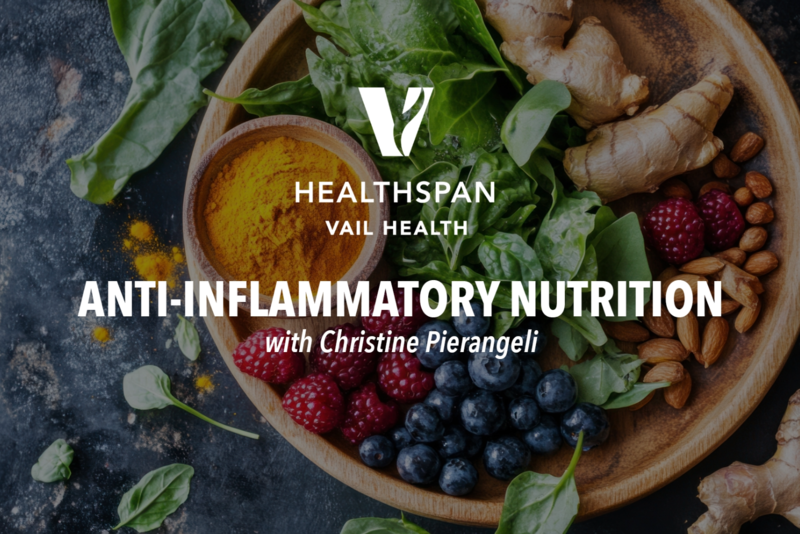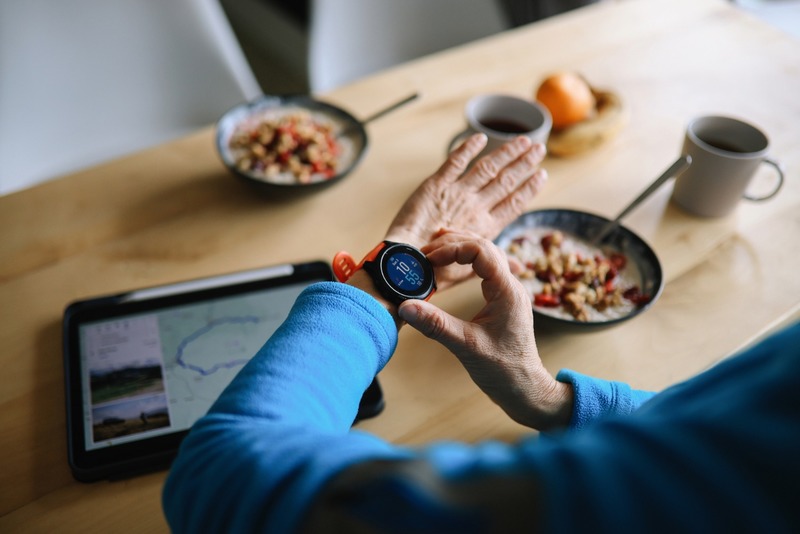News
Chronic Inflammation: What It Is, Why It’s Harmful and How to Reduce It

Inflammation in the body is a normal and healthy response to injury or attack by germs. We can see it, feel it and measure it as local heat, redness, swelling and pain. Inflammation is the body’s way of getting more nourishment and immune activity into an area that needs to fend off infection or heal. But inflammation isn’t always helpful. It also has great destructive potential, which we see when the immune system mistakenly targets the body’s own tissues in autoimmune diseases like type 1 diabetes, rheumatoid arthritis and lupus.
What is Systemic Inflammation
Systemic inflammation refers to chronic, imperceptible, low-level inflammation. The extent of chronic inflammation is influenced by genetics, a sedentary lifestyle, too much stress and exposure to environmental toxins. Diet has a huge impact, so much so that we believe that most people in our part of the world go through life in a pro-inflammatory state as a result of what they eat.When Inflammation is Harmful
Mounting evidence suggests that over time chronic inflammation sets the foundation for many serious, age-related diseases including heart disease, cancer and neurodegenerative conditions such as Alzheimer’s and Parkinson’s diseases. Recent evidence indicates that systemic inflammation may also contribute to psychological disorders, especially depression. It is also linked to memory loss and cognitive decline, increased cardiovascular risk, compromised digestive function, loss of muscle tone, weight gain, accelerated skin aging, joint pain and loss of mobility.How to Avoid Chronic Inflammation
To avoid chronic inflammation, stop eating refined, processed and manufactured foods, including the following. These foods upregulate inflammation, and create extra acidity in the tissues.- Sugar
- Refined carbohydrates (white flour, white rice, white potatoes)
- Gluten, for those with a sensitivity
- Conventionally-raised meat and dairy
- Processed meat
- Trans fats (partially hydrogenated oils)
- Mono-sodium glutamate (MSG) and other food additives and preservatives
- Highly processed vegetable and seed oils, such as canola, corn, sunflower, peanut, grapeseed, and safflower
- Artificial sweeteners
What are Anti-inflammatory Foods?
The following foods help reduce inflammation.- Avocadoes, olives, coconuts and their oils
- Limes, lemons and berries
- Non-starchy veggies
- Wild-caught fish and grass-fed meats
- Fermented veggies and apple cider vinegar
- Bone broth
- Ginger, turmeric and garlic
A Day of Anti-Inflammatory Eating
The following simple daily plan will not only help reduce inflammation, but it also provides the added benefit of stabilizing blood sugar to keep you satisfied and minimize stress.- Breakfast: Egg Muffins
- Lunch: Big green salad loaded with your favorite vegetables and topped with avocado, nuts and seeds. Drizzle extra virgin olive oil, lemon, garlic, sea salt and pepper for dressing and add a side of kimchi.
- Dinner: Wild-caught salmon or grass-fed steak and grilled asparagus topped with extra virgin olive oil on cauliflower rice.
- Dessert/Snack: Chia pudding
- Ingredients:
1 cup full-fat coconut milk
1/4 cup chia seeds - Optional: nuts, vanilla, cinnamon, unsweetened cocoa powder, unsweetened coconut flakes, berries
Instructions - Directions: put all ingredients in a small glass jar and set in the fridge for at least two hours.
- Ingredients:
Lifestyle Tips for Reducing Inflammation
- Good hydration–aim to drink half your weight in ounces each day.
- Regular movement–do what you love and it’s never a chore.
- Reduce stress–develop a mindful practice.
- Improve sleep–7-9 hours is optimal.
Chronic inflammation may be invisible, but its effects can also be dramatic. The good news is that you have more control than you think. By making small, consistent changes—like choosing whole foods, moving your body daily, staying hydrated, managing stress, and getting quality sleep—you can calm inflammation and support your body’s natural healing processes. Start with one step today, and over time, those choices will add up to a healthier, more vibrant you.
To watch Christine’s master class on chronic inflammation, click HERE.
More News
-
New!
More

First Chair to Last Call: What Does Alcohol Really Mean For Your Health?
In nearly every Colorado ski town, some iteration of the neon sign blares its play-hard-party-harder anthem. It’s a not-so-subtle nod to mountain party culture, a lifestyle that normalizes combining sports and outdoor adventures with heavy drinking and partying. In Eagle County, après culture, high-altitude living and outdoor performance have coexisted for as long as locals have been sliding on snow. But how much is too much at altitude? And what role do social support systems play in helping residents find balance?
-
New!
More

Counting More Than Steps: How Wearables Can Help (or Hinder) Your Health
From step counts to sleep stages, heart rate variability to blood sugar spikes, wearable devices are giving us a front-row seat to what’s happening inside our bodies. Strapped to wrists, slipped onto fingers or wrapped around our biceps, wearables like the Oura Ring or Whoop strap promise insight and advice in the quest for better health.
-
More

Cass Barham and Sarah Crabtree Honored As Recipients of Vail Health Elevate Award
Cass Barham and Sarah Crabtree, both lab techs at Vail Health Hospital, have been named recipients of the Vail Health Elevate Award. Vail Health created the Elevate Award in June 2022 to give patients and their families an opportunity to nominate and thank employees who have touched their lives in some way.
